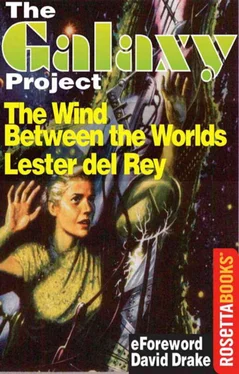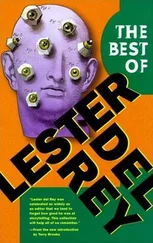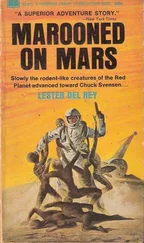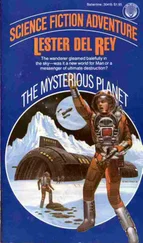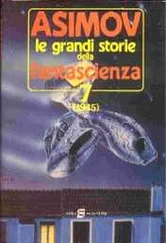The shaggy Plathgolian made an awkward gesture with all three arms, and a slit opened in her chest. “Unprecedented.” The word came out in English, surprisingly, and Pat’s look mirrored his; Plathgolians weren’t supposed to be able to talk. “You’re right. If I speak, I shall be banished by the Council from Plathgol. Ask, nevertheless. I may know more—we’ve had the teleport longer—but remember that your strange race has a higher ingenuity quotient.”
“Thanks.” Vic knew what the seven husbands back on her home planet meant to her, if she were exiled, but he’d worry about that after he could stop worrying about the world. “What happens next?”
She dropped back to the faster Galactic Code for that. As he knew, the accidental turning on of the transmitter had keyed in the one on Ecthinbal automatically to receive, but not to transmit; the air was moving between Earth and Ecthinbal in one-way traffic. The receiving circuit, which would have keyed in the Ecthinbal transmit circuit had not been shorted. Continuous transmittal had never been used, to her knowledge; there was no certainty about what would happen. Once started, no outside force could stop a transmitter; the send and stop controls were synchronous, both tapped from a single crystal, and only that proper complex waveform could cut it off. It now existed as a space-strain, and the Plathgolians believed that this would spread, since the outer edges transmitted before matter could reach the center, setting up an unbalanced resonance that would make the force field grow larger and larger. Eventually, it might spread far beyond the whole building.
And, of course, since the metal used by the Betz II engineers could not be cut or damaged, there was no way of tunneling in.
“What about Ecthinbal?” Pat asked.
Ptheela spread her arms. “The same, in reverse. The air rushes in, builds up pressure to break the capsule, and then rushes out—in a balanced stream, fortunately, so there’s no danger of crowding two units of matter in one unit of space.”
“Then I guess we’d better call the Galactic Envoy,” Vic decided. “All he’s ever done is to sit in an office and look smug. Now—”
“He won’t come. He is simply an observer. Galactic Law says you must solve your own problem or die.”
“Yeah.” Vic looked at the cloud of dust being whirled into the transmitter building. “And all I need is something that weighs a couple tons per square foot—with a good crane attached.”
Pat looked up suddenly. “How about one of the small atom-powered army tanks, the streamlined ones? Flavin could probably get you one.”
Vic stamped down on the pedal, swinging the little tractor around sharply toward the office. The wind was stronger there, but still buck-able. He clicked the televisor on, noticing that the dust seemed to disappear just beyond the normal field of the transmitter. It must already be starting to spread out.
“How about it?” he asked Ptheela. “If it spreads, won’t it start etching into the transmitter and the station?”
“No. Betz II construction. Everything they built in has some way of grounding out the effect. We don’t know how it works, but the field won’t touch anything put m by the Betzians.”
“What about the hunk of glass that’s causing the trouble?”
For a moment she looked as if she were trying to appear hopeful. Then the flowerlike head seemed to will. “It’s inside the casing, protected from the field.”
Pat had been working on the private wire to Chicago, used for emergencies. She was obviously having trouble getting put through to Flavin. The man was a sore spot in Teleport Interstellar, one of the few political appointees. Nominally, he was a go-between for the President and the Teleport group, but actually he was simply a job-holder, Finally Pat had him on the screen.
He was jovial enough, as usual, with a red spot on each cheek which indicated too many drinks for lunch. A bottle stood on the desk in front of him. But his voice was clean enough. “Hi, Pat. What’s up?”
Pat disregarded the frown Vic threw her, and began outlining the situation. The panic in her voice didn’t require much feigning. Flavin blustered at first, then pressed the hold button for long minutes. Finally, his face reappeared.
“Peters, you’ll have full authority, of course. I’ll get a couple tanks for you, somehow, but I have to work indirectly.” Then he shrugged and looked rueful. “I always knew this sinecure would end. I’ve got some slips here that make it look as if you had a national disaster.”
His hand reached for the bottle, just as his eyes met Vic’s accusing look. He shook his head, grinned sourly, put the bottle away in a drawer, untouched. “I’m not a fool entirely, Peters. I can do a little more than chase girls and drink. Probably be no use to you, but the only reason I drink is I’m bored, and I’m not bored now. I’ll be out shortly.”
Flavin apparently had influence. The tanks arrived just before he did. They were heavy, squat affairs, super-armored to stand up under a fairly close atomic bomb hit, but small enough to plunge through the portals of the transmitter building. Flavin came up as Vic and Pat were studying them. His suit was designed to hide most of his waistline, but the fat of his jowls shook as he hurried up, and there was sweat on his forehead, trickling down from under his toupee.
“Two, eh? Figured that’s what I’d get if I asked for a dozen. Think you can get in—and what’ll you do then?”
Vic shrugged. He’d been wondering the same thing. “If we could somehow ram the huge piece of glass and crack it where it was wedged into the wiring inside the shielding, it might release the shorted wires. That should effect an automatic cut-off. That’s why I’m going with the driver. I can extemporize if we get in.”
“Right,” Pat agreed quickly. She hitched up her coveralls and headed for the other tank. “And that’s why I’m going with the other.”
“Pat!” Vic swung toward her. But it wasn’t a time for stupid chivalry. The man or woman who could do the job should do it. He gave her a hand into the compact little tank. “Good luck, then. We’ll need it.”
He climbed into his own vehicle, crowding past the driver and wriggling into the tiny observer’s seat. The driver glanced back, reached for the controls. The motor hummed quietly under them, making itself felt by the vibration of the metal around them. They began moving forward, advancing in low gear. The driver didn’t like it as he stared through his telescreen, and Vic liked it even less from the direct view through the gun slit. Beside them, the other tank got into motion, roughly paralleling them.
At first it wasn’t too bad. They headed toward the north portal, going cautiously, and the tank seemed snug and secure. Beside him, Vic saw a tree suddenly come up by its roots and head toward the transmitter. It struck the front of the tank, but the machine pushed it brutally aside.
Then the going got rough. The driver swore at the controls, finding the machine hard to handle. It wanted to drift, and he set up a fixed correction, only to revise it a moment later. The tank began to list and pitch. The force of the wind increased geometrically as they cut the distance. At fifty feet, the driver’s wrists were white from fighting to overcome each tilt of the wind.
Vic swallowed, wondering at the nerve of the man driving, until he saw blood running from a bitten lip. His own stomach was pitching wildly.
“Try another ten feet?” the driver asked.
“Have to.”
They crawled by inches now. Every tiny bump threatened to let the force of the wind pitch them over. They had to work by feel. Vic wiped his forehead and wiped it again before he noticed that the palm of his hand was as damp as his brow.
Читать дальше
